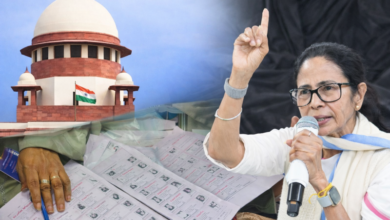Shocking Revelations by Hema Committee Highlight Deep-Rooted Gender Inequality in Malayalam Cinema

News Mania Desk/Agnibeena Ghosh/20th August 2024
The Justice Hema Committee’s findings on the conditions faced by women in the Malayalam film industry have sparked a significant debate on gender equality and workplace exploitation. The committee was formed following a petition by the Women in Cinema Collective (WCC) after a widely publicized sexual assault case involving a prominent actor, Dileep, who is currently on trial. The committee’s mandate was to investigate the challenges women face in cinema, covering areas such as working conditions, pay equity, and participation in technical roles, as well as to recommend measures to enhance gender equality and improve safety.
The committee’s work was hampered by various obstacles, including difficulties in reaching out to industry professionals, a shortage of essential staff like stenographers, and delays from key individuals in responding to inquiries. Despite these challenges, the committee’s findings offer a disturbing glimpse into the systemic issues plaguing the industry.
One of the most shocking revelations from the report is that harassment in the Malayalam film industry begins from the very outset of a woman’s career. The committee found that women often face a lack of basic facilities, such as adequate toilets and safe changing rooms, which significantly contribute to their insecurity on set. The report recommends the installation of e-toilets in sufficient numbers and the establishment of safe, temporary changing rooms at every filming location to address these issues.
Another critical finding is the pervasive culture of “adjustment” and “compromise” that women are forced to endure to secure roles and advance in their careers. These terms, as the report highlights, are euphemisms for sexual exploitation, with women often being pressured to make themselves available for sex on demand. This coercive environment is well-known among women in the industry and represents a significant barrier to their professional growth.
The report also sheds light on the unsafe living conditions women actors face while on location. Many women are forced to bring friends or relatives along as a precaution against unwanted advances. The report details instances where intoxicated men from the film industry would aggressively knock on their hotel room doors, causing the women to fear for their safety. In one harrowing account, an actress was forced to perform a scene as the wife of a male actor who had previously sexually assaulted her. The trauma was so profound that it took 17 retakes to get the shot, with the director blaming the actress for her inability to perform.
The committee further notes that the more famous a woman becomes, the greater the embarrassment and fear of reporting sexual assault. Public figures, especially women, are often targeted with harassment, including cyber-attacks, if they speak out. This fear of retaliation, combined with the potential harm to their families, discourages many from seeking justice.
A significant issue highlighted by the committee is the power nexus within the industry, where a small group of influential producers, directors, and actors control the industry. This nexus perpetuates sexual harassment, with victims fearing not only for their current roles but also for their entire careers if they dare to complain. This toxic environment affects not just women but also aspiring male actors who face similar exploitation.
The committee also discovered that many women and junior actors are not paid their full wages due to the lack of written contracts, a problem that does not typically affect top stars. In one case, a female actor had to beg for her rightful remuneration, illustrating the industry’s deep-seated issues with wage inequality.
In conclusion, the Hema Committee’s report underscores the urgent need for systemic changes in the Malayalam film industry. Addressing these issues is crucial not only for ensuring justice for women but also for creating a more equitable and inclusive industry in Kerala.






